Life
-
 Health & Medicine
Health & MedicineTaste good? Senses inform the brain — but don’t tell everyone the same thing
Whether something tastes appetizing depends on what a host of different sensory nerves collectively tell the brain. Warning: Sometimes they aren’t dependable — or even truthful.
By Lela Nargi -
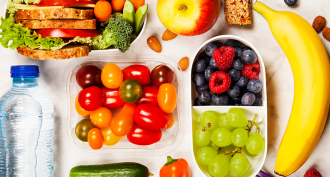 Health & Medicine
Health & MedicineExplainer: Taste and flavor are not the same
What’s behind a food’s flavor? More than what we taste, it turns out.
By Lela Nargi -
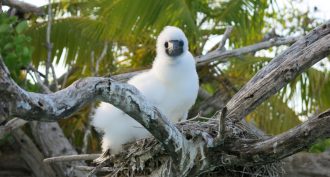 Ecosystems
EcosystemsBird poop helps keep coral reefs healthy, but rats are interfering
Eradicating invasive rats from islands may help boost numbers of seabirds. The birds’ droppings provide nutrients to nearby coral reefs.
-
 Planets
PlanetsFinding living Martians just got a bit more believable
What might a real Martian look like? Scientists have a better idea after identifying a buried liquid lake on the Red Planet.
-
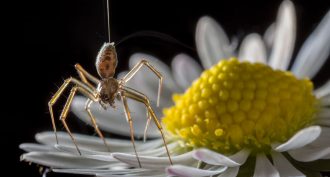 Animals
AnimalsElectric currents in the air may cue ‘ballooning’ spiders on when to take off
Some spider species float on the breeze using a parachute of silk. A new study suggests electrical charges in the air help spiders time these flights.
-
 Brain
BrainScientists Say: Ventral striatum
The ventral striatum is an area of the brain that plays an important role in mood, learning and addiction. It has a lot of dopamine, a chemical messenger.
-
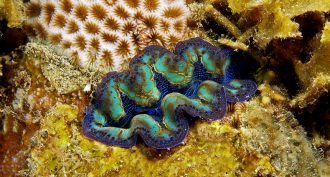 Animals
AnimalsHere’s how a clam can hide within a rock
Old boring clam research has been upended after 82 years.
By Susan Milius -
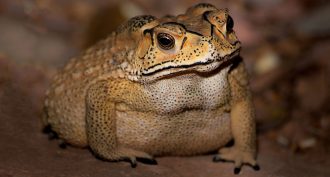 Genetics
GeneticsToxic toads pose threat to Madagascar’s predators
The Asian common toad, an invasive species in Madagascar, produces a chemical in its skin that’s probably toxic to most of the island’s predators.
-
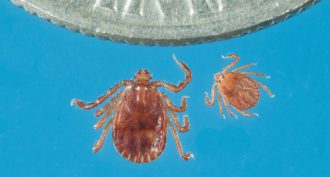 Animals
AnimalsAn Asian, self-cloning tick threatens U.S. livestock
The longhorned tick spreads human diseases in its East Asian homeland. Now it’s invaded the United States. There, it has threatened mostly livestock — so far, anyway.
-
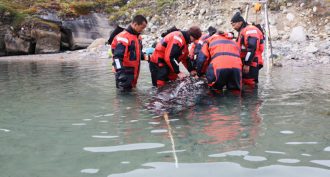 Animals
AnimalsHere’s what narwhals sound like underwater
Scientists eavesdropped while narwhals clicked and buzzed. The work could help pinpoint how the whales may react to more human noise in the Arctic.
-
 Health & Medicine
Health & MedicineDogs carry a grab bag of flu viruses
Dogs carry a mix of flu viruses, including some that came from pigs. But there’s no reason to worry just yet.
-
 Animals
AnimalsScientists Say: Krill
Krill are small crustaceans in the ocean. They are an important food source for other larger animals, and their tiny swimming motions can mix nutrients in the sea.